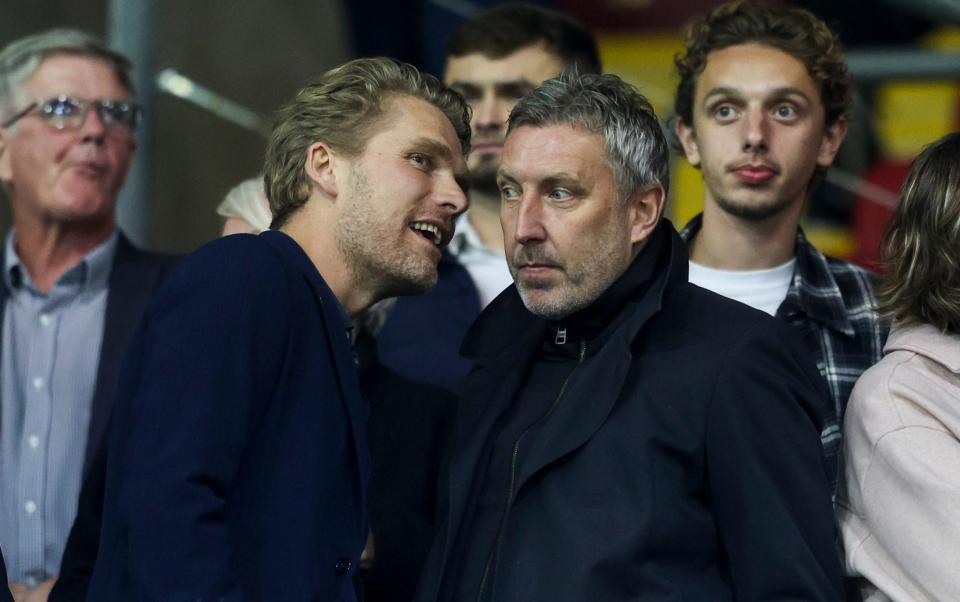Sir Jim Ratcliffe unable to spend big in summer after Man Utd’s £555m splurge

Manchester United’s first summer transfer budget under Sir Jim Ratcliffe will be severely squeezed by financial fair play restrictions – and take an even bigger hit if the club fail to qualify for the Champions League.
United’s £555 million spend over the previous three summer windows, coupled with struggles to raise meaningful funds through sales, leaves Ratcliffe, who was finally confirmed as co-owner on Tuesday night, with little financial headroom for his first summer in charge.
And United’s spending power will diminish further if manager Erik ten Hag is unable to secure a top-four finish and the club miss out on the minimum £40 million windfall for participation in the Champions League group stage.
On Tuesday evening, Ratcliffe described his delight as he officially took full control of football operations after completing an initial 27.7 per cent purchase of the club.
“To become co-owner of Manchester United is a great honour and comes with great responsibility,” he said in a press release from the club as the deal was declared to the New York Stock Exchange following regulatory approvals last week. “This marks the completion of the transaction, but just the beginning of our journey to take Manchester United back to the top of English, European and world football, with world-class facilities for our fans. Work to achieve those objectives will accelerate from today.”
After being handed the keys, the Ineos founder is wasting no time overhauling the recruitment set-up. United hope to appoint Dan Ashworth as their new sporting director provided a compensation deal can be struck with Newcastle and are also in talks about bringing in Southampton director of football Jason Wilcox in a senior recruitment role.

Also, Omar Berrada, Manchester City’s former chief operating officer who was heavily involved in transfers at the Premier League champions and instrumental to their signing of Erling Haaland, will become United chief executive in the summer.
Ten Hag’s £420 million splurge in the previous two summers on players such as Rasmus Hojlund, Casemiro and Antony combined with the £135 million outlay in Ole Gunnar Solskjaer’s final summer on Jadon Sancho, Raphael Varane and Cristiano Ronaldo have contributed to United’s total pre-tax losses of £215 million over that period.
Under Premier League profitability and sustainability rules, clubs are allowed maximum losses of £105 million over a three-year period.
Although United will be able to make significant deductions for Covid losses, the academy, women’s team and community projects, the losses present serious challenges and place significant constraints on what the club can spend.
Uefa has its own financial sustainability rules and next season clubs will be permitted to spend a total of 80 per cent of their overall revenues – plus any profit from player sales – on transfer fees, squad and coach wages and agents’ fees. That drops to 70 per cent for the 2025-26 campaign.
United’s tight finances partly underline why Ten Hag was unable to bolster his squad in the January transfer window as the club sought to balance the books by offloading a host of players on loan.
They included Sancho and Donny van de Beek but also a number of academy graduates whose potential permanent sales in the summer would represent pure profit.

All of which illustrates the delicate balancing act Ratcliffe faces this summer as United attempt to improve their squad.
As well as the onus on buying well with shrewd, smart acquisitions, United will need to raise funds through sales – which helps to explain his determination to overhaul recruitment by targeting best-in-class figures such as Berrada, Ashworth and Wilcox after a decade of bungled spending under the Glazers.
Sancho and Casemiro are examples of the high-profile players United are likely to seek to offload to raise money to reinvest. It also remains to be seen whether Ratcliffe keeps faith with Ten Hag.
One source close to Ratcliffe said: “You can’t do it overnight because of FFP and the fact the club has put themselves in a very tough financial position.
“You can’t buy your way out of it. You can’t do a City because there’s no headroom. You can dress things up, invest in infrastructure – you spend as much as you want on the stadium. But when it comes to the squad that’s going to take time and funding.
“Clearly restructuring the squad has to be a key part of your agenda but you’re tied down by FFP so it’s a steady process.”

